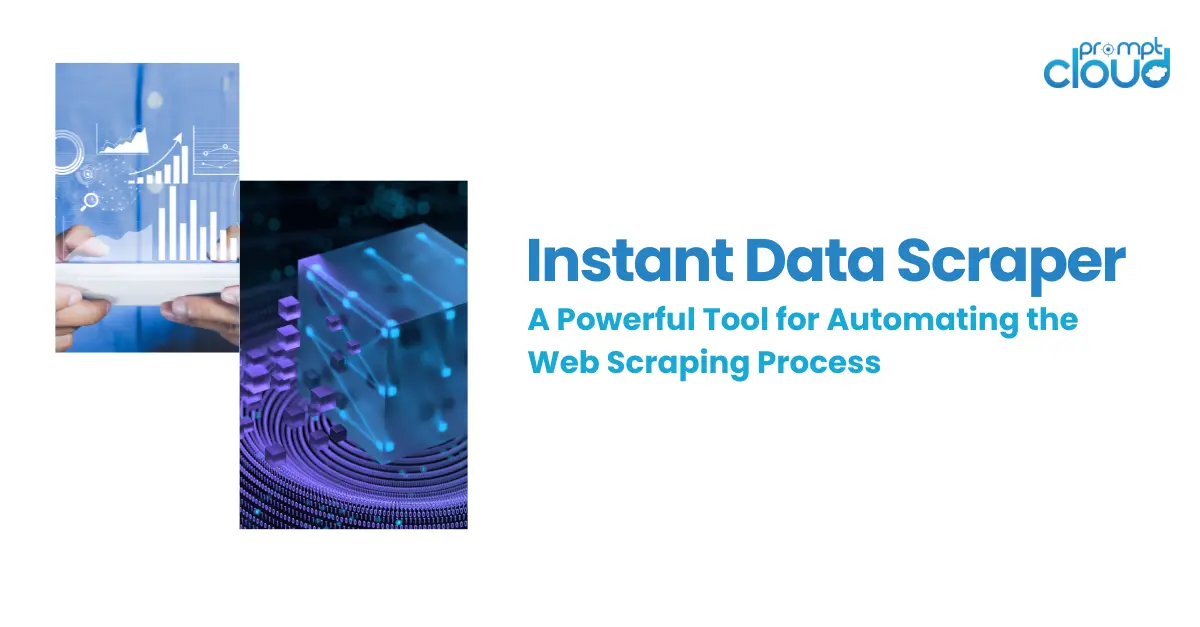
Web scraping is a practice that comes with numerous technical challenges, even for seasoned data miners. It entails using programming techniques to obtain and retrieve data from websites, which isn’t always easy because of the intricate and varied nature of web technologies.
Moreover, many websites have protective measures in place to prevent data harvesting, making it essential for scrapers to negotiate anti-scraping mechanisms, dynamic content, and complicated site structures.
Despite the objective of acquiring useful information quickly appearing simple, getting there requires overcoming several formidable barriers, demanding strong analytical and technical abilities.
Handling Dynamic Content
Dynamic content, which refers to webpage information that updates based on user actions or loads following the initial page view, commonly poses challenges for web scraping tools.
Image Source: https://www.scaler.com/topics/php-tutorial/dynamic-website-in-php/
Such dynamic content is frequently utilized in contemporary web applications built using JavaScript frameworks. To successfully manage and extract data from such dynamically generated content, consider these best practices:
- Consider using web automation tools such as Selenium, Puppeteer, or Playwright, which enable your web scraper to behave on the webpage similarly to how a genuine user would.
- Implement WebSockets or AJAX handling techniques if the website utilizes these technologies to load content dynamically.
- Wait for elements to load by using explicit waits in your scraping code to ensure that the content is fully loaded before attempting to scrape it.
- Explore using headless browsers which can execute JavaScript and render the full page including dynamically loaded content.
By mastering these strategies, scrapers can effectively extract data from even the most interactive and dynamically changing websites.
Anti-Scraping Technologies
It is common for web developers to put in place measures aimed at preventing unapproved data scraping to safeguard their websites. These measures can pose significant challenges to web scrapers. Here are several methods and strategies to navigate through anti-scraping technologies:
Image Source: https://kinsta.com/knowledgebase/what-is-web-scraping/
- Dynamic Factoring: Websites may generate content dynamically, making it harder to predict URLs or HTML structures. Utilize tools that can execute JavaScript and handle AJAX requests.
- IP Blocking: Frequent requests from the same IP can lead to blocks. Use a pool of proxy servers to rotate IPs and mimic human traffic patterns.
- CAPTCHAs: These are designed to distinguish between humans and bots. Apply CAPTCHA solving services or opt for manual entry if feasible.
- Rate Limiting: To avoid tripping rate limits, throttle your request rates and implement random delays between requests.
- User-Agent: Websites might block known scraper user-agents. Rotate user-agents to imitate different browsers or devices.
Overcoming these challenges requires a sophisticated approach that respects the website’s terms of service while efficiently accessing the needed data.
Dealing with CAPTCHA and Honeypot Traps
Web scrapers often encounter CAPTCHA challenges designed to distinguish human users from bots. Overcoming this requires:
- Utilizing CAPTCHA-solving services that leverage human or AI capabilities.
- Implementing delays and randomizing requests to mimic human behavior.
For honeypot traps, which are invisible to users but trap automated scripts:
- Carefully inspect the website’s code to avoid interaction with hidden links.
- Employing less aggressive scraping practices to stay under the radar.
Developers must ethically balance effectiveness with respect for website terms and user experience.
Scraping Efficiency and Speed Optimization
Web scraping processes can be improved by optimizing both efficiency and speed. To overcome challenges in this domain:
- Utilize multi-threading to allow simultaneous data extraction, increasing throughput.
- Leverage headless browsers for faster execution by eliminating unnecessary loading of graphical content.
- Optimize the scraping code to execute with minimal latency.
- Implement appropriate request throttling to prevent IP bans while maintaining a stable pace.
- Cache static content to avoid repeated downloads, conserving bandwidth and time.
- Employ asynchronous programming techniques to optimize network I/O operations.
- Choose efficient selectors and parsing libraries to reduce the overhead of DOM manipulation.
By incorporating these strategies, web scrapers can achieve robust performance with minimized operational hiccups.
Data Extraction and Parsing
Web scraping requires precise data extraction and parsing, presenting distinct challenges. Here are ways to address them:
- Use robust libraries like BeautifulSoup or Scrapy, which can handle various HTML structures.
- Implement regular expressions cautiously to target specific patterns with precision.
- Leverage browser automation tools like Selenium to interact with JavaScript-heavy websites, ensuring data is rendered before extraction.
- Embrace XPath or CSS selectors for accurate pinpointing of data elements within the DOM.
- Handle pagination and infinite scrolling by identifying and manipulating the mechanism that loads new content (e.g., updating URL parameters or handling AJAX calls).
Mastering the Art of Web Scraping
Web scraping is an invaluable skill in the data-driven world. Overcoming technical challenges—ranging from dynamic content to bot detection—requires perseverance and adaptability. Successful web scraping involves a blend of these approaches:
- Implement intelligent crawling to respect website resources and navigate without detection.
- Utilize advanced parsing to handle dynamic content, ensuring that data extraction is robust against changes.
- Employ CAPTCHA-solving services strategically to maintain access without interrupting data flow.
- Thoughtfully manage IP addresses and request headers to disguise scraping activities.
- Handle website structure changes by routinely updating parser scripts.
By mastering these techniques, one can adeptly navigate the intricacies of web crawling and unlock vast stores of valuable data.
Managing Large Scale Scraping Projects
Large-scale web scraping projects require robust management to ensure efficiency and compliance. Partnering with web scraping service providers offers several advantages:
Entrusting scraping projects to professionals can optimize outcomes and minimize the technical strain on your in-house team.
FAQs
What are the limitations of web scraping?
Web scraping faces certain constraints that one must consider prior to incorporating it into their operations. Legally, some websites disallow scraping via terms and conditions or robot.txt files; ignoring these restrictions could result in severe consequences.
Technically, websites may deploy countermeasures against scraping such as CAPTCHAs, IP blocks, and honey pots, thereby preventing unauthorized access. The accuracy of data extracted can also become an issue because of dynamic rendering and frequently updated sources. Lastly, web scraping calls for technical know-how, investment in resources, and ongoing effort – presenting challenges, particularly for non-technical people.
Why is data scraping a problem?
Issues arise mainly when data scraping occurs without requisite permissions or ethical conduct. Extracting confidential info breaches privacy norms and transgresses statutes designed to safeguard individual interests.
Overuse of scraping strains target servers, negatively impacting performance and availability. Intellectual property theft constitutes yet another concern arising from illicit scraping owing to possible copyright violation lawsuits initiated by aggrieved parties.
Therefore, abiding by policy stipulations, upholding ethical standards, and seeking consent wherever needed remains crucial while undertaking data scraping tasks.
Why web scraping may be inaccurate?
Web scraping, which entails automatically extracting data from websites through specialized software, does not guarantee complete accuracy owing to various factors. For instance, modifications in website structure could cause the scraper tool to malfunction or capture erroneous information.
Furthermore, certain websites implement anti-scraping measures like CAPTCHA tests, IP blocks, or JavaScript rendering, leading to missed or distorted data. Occasionally, developer oversights during creation contribute to suboptimal outcomes too.
However, partnering with proficient web scraping service providers can bolster precision since they bring requisite know-how and assets to construct resilient and nimble scrapers capable of maintaining high accuracy levels despite shifting website layouts. Skilled experts test and validate these scrapers meticulously prior to implementation, ensuring correctness throughout the extraction process.
Is web scraping tedious?
Indeed, engaging in web scraping activities can prove laborious and demanding, particularly for those lacking coding expertise or comprehension of digital platforms. Such tasks require crafting bespoke codes, rectifying faulty scrapers, administering server architectures, and keeping abreast of alterations occurring within targeted websites – all necessitating considerable technical abilities alongside substantial investments in terms of time expenditure.
Expanding past basic web scraping undertakings grows progressively intricate given considerations around regulatory compliances, bandwidth management, and implementing distributed computing systems.
By contrast, opting for professional web scraping services substantially diminishes associated burdens via ready-made offerings designed according to user-specific demands. Consequently, customers concentrate primarily on harnessing harvested data while leaving collection logistics to dedicated teams comprising skilled developers and IT specialists responsible for system optimization, resource allocation, and addressing legal queries, thereby markedly reducing overall tedium related to web scraping initiatives.



















